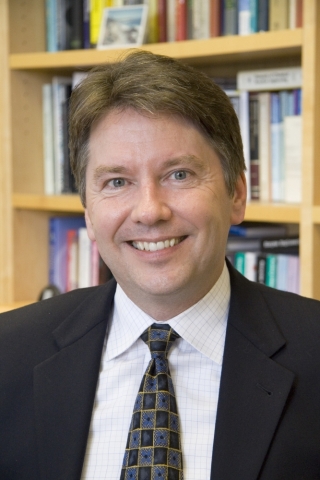
Date:
Location:
Speaker:
Abstract:
Protein engineering enables the modification of existing proteins or the creation of entirely new ones for novel and improved functions. Accelerated rates of catalysis, enhanced stability against denaturants, higher binding affinities of ligands, and even programmed self-assembly and designed mechanical functions are currently possible and rapidly advancing with improved techniques and understanding of protein structure-function relationships. Application areas of protein engineering that we have recently focused on include the production of biofuels, the synthesis of chiral molecules, and the development of advanced biomaterials. Examples of each will be discussed, and are introduced below.
The high cost of hydrolytic enzymes impedes the commercial production of lignocellulosic biofuels. High enzyme loadings are required in part due to their non-productive adsorption to lignin, a major component of biomass. We therefore used site-directed mutagenesis of the carbohydrate binding module and linker region of a fungal cellulase (Cel7A from Trichoderma reesei) to investigate the mechanisms of adsorption to lignin and engineer a cellulase with increased binding specificity for cellulose.
Catalysis is central to modern chemistry, and transition metal catalysts are powerful tools for various transformations, not only in production of bulk chemicals, but also in fabrication of fine chemicals and biologically active compounds. Despite the immense progress in the field of chemical catalysis, the selectivity of such reactions for particular substrates of interest is often difficult to achieve with classic transition metal catalysts. In collaboration with Chemistry Professor John Hartwig and coworkers, we have transformed myoglobin and cytochromes P450 into novel enzymes that catalyze reactions that are not catalyzed by native Fe-enzymes. This strategy sets the stage to generate artificial enzymes from innumerable combinations of porphyrin-protein scaffolds and unnatural metal cofactors that catalyze a wide range of abiological transformations.
Finally, self-assembling protein templates have enormous potential for the fabrication of multifunctional nanostructures that require precise positioning of individual molecules, such as enzymes and inorganic moieties, in regular patterns. We are endeavoring to develop a standardized biomolecular construction kit composed of ultrastable filamentous proteins and connectors that assemble together into specific structures of controllable size and shape. Applications and materials currently under development include 2D and 3D patterning of metals and enzymes, biomolecular assemblies that perform mechanical functions, and bioorganic hydrogels with tunable properties.
Bio:
Douglas S. Clark is currently Dean of the College of Chemistry and Professor in the Department of Chemical and Biomolecular Engineering at the University of California, Berkeley. He is also the Co-Director of the Synthetic Biology Institute, Faculty Scientist at Lawrence Berkeley Laboratory, and holds the endowed G.N. Lewis Chair. Prior to his appointment as dean, Clark served as Department Chair of Chemical and Biomolecular Engineering and Executive Associate Dean in the College of Chemistry. Clark has been a faculty member at Berkeley since 1986. He received his Ph.D. in Chemical Engineering from the California Institute of Technology in 1983 and a B.S. in Chemistry, Summa Cum Laude, from the University of Vermont in 1979.
Professor Clark is a leader in biochemical engineering, with particular emphasis on enzyme technology, biomaterials, and bioenergy. Underlying these general topics is a longstanding interest in extremophiles and extremophilic enzymes. His work in biocatalyst engineering has created new opportunities for the application of enzymes in the pharmaceutical, chemical, and agrochemical industries. Clark translated the use of combinatorial biocatalysis into commercial practice by co-founding the drug discovery company EnzyMed, Inc. His development of protein and cellular arrays has enabled high-throughput biosynthesis and activity/toxicity screening of potential drugs; this technology is also the basis of a startup company. Clark has published over 250 papers in peer-reviewed journals, has 26 patents and patent applications, and is the co-author of a textbook on biochemical engineering.
Among his numerous honors and awards, Clark is a Fellow of the American Association for the Advancement of Science and the American Institute of Medical and Biomedical Engineers; he is the recipient of the James E. Bailey Award from the Society of Biological Engineering; the Marvin J. Johnson Award in Microbial and Biochemical Technology from the American Chemical Society; the Food, Pharmaceutical, and Bioengineering Award of the American Institute of Chemical Engineers; the Amgen Award in Biochemical Engineering; the International Enzyme Engineering Award; and the NorCal Chemical Engineering Award—Industrial Research. He has also received the Departmental Chemical Engineering Teaching Award and the Presidential Young Investigator Award (National Science Foundation). Clark serves as Editor in Chief of Biotechnology and Bioengineering, and is on the editorial boards of Enzyme and Microbial Technology and Extremophiles.



